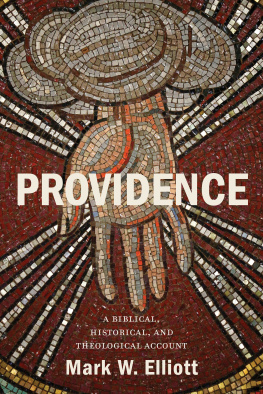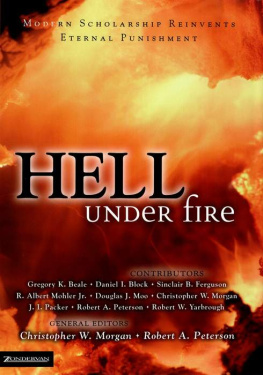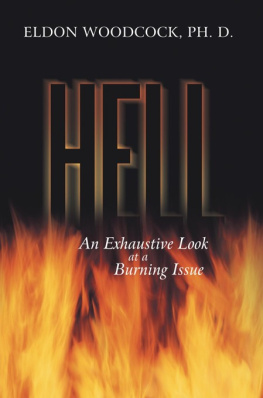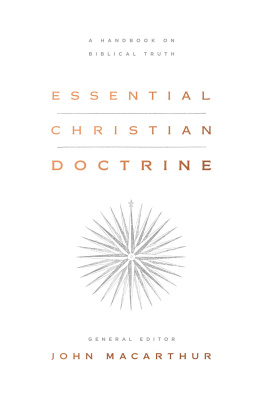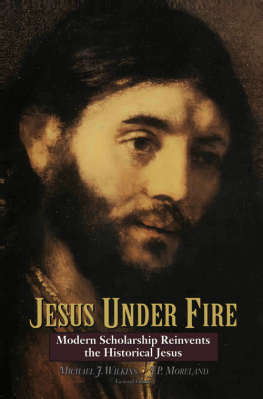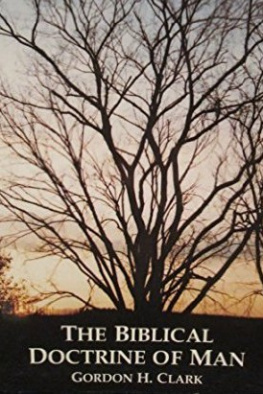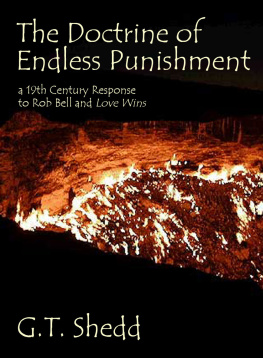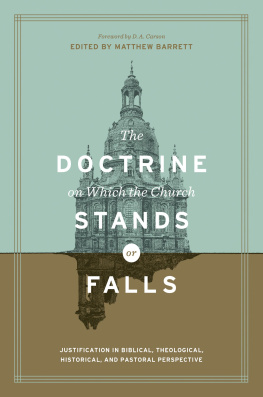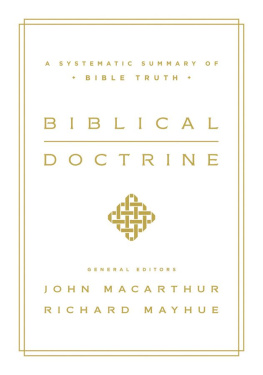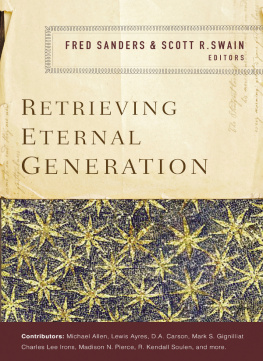Fudge - The fire that consumes: a biblical and historical study of the doctrine of final punishment
Here you can read online Fudge - The fire that consumes: a biblical and historical study of the doctrine of final punishment full text of the book (entire story) in english for free. Download pdf and epub, get meaning, cover and reviews about this ebook. City: Eugene;Or, year: 2011;2014, publisher: Wipf & Stock Publishers;Cascade Books, genre: Religion. Description of the work, (preface) as well as reviews are available. Best literature library LitArk.com created for fans of good reading and offers a wide selection of genres:
Romance novel
Science fiction
Adventure
Detective
Science
History
Home and family
Prose
Art
Politics
Computer
Non-fiction
Religion
Business
Children
Humor
Choose a favorite category and find really read worthwhile books. Enjoy immersion in the world of imagination, feel the emotions of the characters or learn something new for yourself, make an fascinating discovery.

- Book:The fire that consumes: a biblical and historical study of the doctrine of final punishment
- Author:
- Publisher:Wipf & Stock Publishers;Cascade Books
- Genre:
- Year:2011;2014
- City:Eugene;Or
- Rating:4 / 5
- Favourites:Add to favourites
- Your mark:
- 80
- 1
- 2
- 3
- 4
- 5
The fire that consumes: a biblical and historical study of the doctrine of final punishment: summary, description and annotation
We offer to read an annotation, description, summary or preface (depends on what the author of the book "The fire that consumes: a biblical and historical study of the doctrine of final punishment" wrote himself). If you haven't found the necessary information about the book — write in the comments, we will try to find it.
Fudge: author's other books
Who wrote The fire that consumes: a biblical and historical study of the doctrine of final punishment? Find out the surname, the name of the author of the book and a list of all author's works by series.
The fire that consumes: a biblical and historical study of the doctrine of final punishment — read online for free the complete book (whole text) full work
Below is the text of the book, divided by pages. System saving the place of the last page read, allows you to conveniently read the book "The fire that consumes: a biblical and historical study of the doctrine of final punishment" online for free, without having to search again every time where you left off. Put a bookmark, and you can go to the page where you finished reading at any time.
Font size:
Interval:
Bookmark:
T his year of 2011 begins the thirtieth year since the publication of the original edition of The Fire That Consumes . University and seminary professors are teaching today who then were not yet born. That original edition was something of a groundbreaker. As mainline evangelicals, we were at home with the majority interpretation of hell as unending conscious torment (the traditionalist view), and we assumed that it was thoroughly biblical and beyond dispute.
For most of us, the understanding of hell as a place of total, everlasting destruction (the conditionalist view) was still completely newas was the five-hundred-page case that The Fire That Consumes presented in its support. It was appropriate for the tone of that original edition to be didactic rather than argumentative.
Gods Power and Glory
That was 1982 , and Gods hand had been evident in this book from the beginning. Written by an unknown author with no prestigious institutional connection, and privately published by a small and obscure Verdict Publications, the original edition of The Fire That Consumes nevertheless carried a commendatory foreword by the highly-respected New Testament commentator, F. F. Bruce. The second, British, edition included a second foreword by John W. Wenham of Oxford. A new foreword by Richard Bauckham crowns this third edition.
The first printing sold out in five months and the publisher turned the book over to me. Two elders in my church cosigned a bank note to finance the second printing and, in view of all the circumstances, I registered the trade name Providential Press for this book alone. The Evangelical Book Club chose it as an Alternate Selection, and, since 1982 , our gracious and sovereign God has used The Fire That Consumes to help stimulate a rethinking of hell around the world.
My Weakness
The apostle Paul tells us that God sometimes uses what is foolish, weak, and despised in this world to accomplish his purposes and to glorify himself. This book provides one more example. Six years after The Fire That Consumes was published, I received a doctorate in jurisprudence and began more than two decades of practicing law. When a major book defending traditionalism appeared with the title Hell on Trial, it seemed appropriate that at least one participant in the theological conversation should also be an attorney.
Some readers, learning of my profession but confused on the chronology, imagined a modern Simon Greenleaf and accorded me unwarranted respect. Little did they know that while researching and writing The Fire That Consumes, I was working as a typesetter in an Alabama print shop and serving as volunteer pastor for a thirty-person nondenominational congregation who regularly met in a renovated barn. Happily, none of those things presented any problem for God, whose providential arrangement of circumstances and timing of events accomplished results that would have been impossible through human planning, means and effort.
Feedback
Since this books publication in 1982 , at least a dozen books have been written in response, in addition to multiple Masters theses and at least two doctoral dissertations, including one at the University of Oxford.
Throughout this new edition, I interact with seventeen traditionalist authors. In addition, I welcome every opportunity to present the conditionalist case at any school or church, and to interact in person with responsible persons of good will who hold a different view. My website is www.EdwardFudge.com and my email address is .
In the larger picture, all disputants in the present debate are on the same side. I hope always to treat all of Gods image-bearers, and especially his children, with courtesy and respect. As believers, we all trust in, belong to, and seek to serve the same Lord Jesus Christ. God holds each of us accountable for how we handle the light we have been given, and for how we respond to new light that breaks forth from his holy Word.
Profession Vindicated by Action
As evangelicals, we profess commitment to a high view of Scripture. Translating that commitment into our daily work is easier said than done, especially when, as here, we start our journey entangled in centuries of Catholic and Protestant traditions. For many Christians, those traditions are reinforced by denominational or ecclesiastical confessions and by institutional statements of faith. How we work through these competing interests will depend on, demonstrate, and/or determine the sincerity of our profession and the mettle of our commitment.
Edward William Fudge
Houston, Texas
In the Year of Grace 2011
W hatever happened to hell? asks British evangelist John Blanchard. As a specialist in popular culture and religion, Marty should know better than most.
In the public square, fire and brimstone are definitely out of vogue. Hell still shows up in conversation often enough, but generally as an expletive rather than as a serious subject. Hell is not unique in this regardthe same can be said of Jesus Christ.
More troubling than hells absence from secular society is its general disappearance from many Christian pulpits. Interestingly, although nearly all evangelical pastors and teachers firmly believe that Jesus will come to judge the living and the dead, a considerable number of them cannot remember when they last preached or taught on the subject. Might those missing sermons reflect a deeper, widespread problem with the traditional interpretation of hell?
The Rethinking of Hell
Book titles tell the story: Hell on Trial
The worldwide restudy of the biblical doctrine of final punishment did not begin by accident or without good reason. It resulted from the writings of such respected scholars as John W. Wenham of Oxford, a major British advocate of biblical authority for over half a century and the author of the most widely-used Greek textbook for many years throughout the English-speaking world.
Similar encouragement came from F. F. Bruce,the noted London pastor beloved worldwide for his books, leadership in world missions, and unsurpassed preachingwho urged a fresh investigation of biblical teaching on this subject.
When leaders of this caliber call for a more serious study of hell, or even announce that they have rejected parts of the traditional view and urge others to follow suit, it is enough (borrowing a phrase from the erudite J. I. Packer) to put the cat among the pigeons. Other notables include E. Earle Ellis of Southwestern Baptist Theological Seminary, Reformed Anglican visiting professor Philip E. Hughes of Westminster Seminary (and elsewhere), long-time professor Homer Hailey of the Churches of Christ, and Canadian Baptist Clark Pinnock.
Joining these very visible authors are thousands of committed and thoughtful evangelicalspastors, teachers, professors, and other serious Bible studentswho, privately or publicly, question the traditional doctrine of unending conscious torment, denounce it as an unbiblical hindrance to evangelism, or consider it an unnecessary slander against God himself.
What Is Behind the Change?
Albert H. Mohler voices the question many are now thinking: How did a doctrine so centrally enshrined in the system of theology suffer such a wholesale abandonment? From their perspective, the answers given by these prominent evangelicals, all of whom defend the traditional interpretation of hell as unending conscious torment, make perfect sense.
But what if they all are mistaken, unknowingly distracted from the real answer by centuries of tradition, human assumptions, and denominational creeds? What if the muting of hell is due neither to emotional weakness nor loss of gospel commitment?
What if the biblical foundations thought to support unending conscious torment are less secure than has been widely supposed? What about a growing doubt concerning the idea that God, who gave his Son to die for sinful human beings, will keep billions of those same people alive forever, only to torment them without end?
Font size:
Interval:
Bookmark:
Similar books «The fire that consumes: a biblical and historical study of the doctrine of final punishment»
Look at similar books to The fire that consumes: a biblical and historical study of the doctrine of final punishment. We have selected literature similar in name and meaning in the hope of providing readers with more options to find new, interesting, not yet read works.
Discussion, reviews of the book The fire that consumes: a biblical and historical study of the doctrine of final punishment and just readers' own opinions. Leave your comments, write what you think about the work, its meaning or the main characters. Specify what exactly you liked and what you didn't like, and why you think so.

